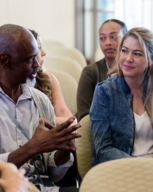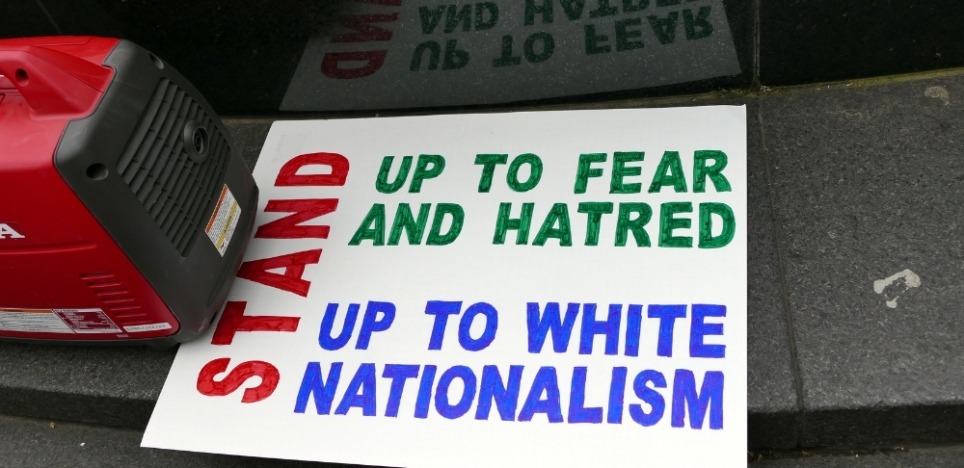This week citizens in Enid, Oklahoma, voted to recall a city councilman who marched in the neo-Nazi rallies in Charlottesville in 2017. The councilman, Judd Blevins, came clean about his participation but waffled over other evidence that characterized him as a committed white nationalist.
There is more to this story. It would certainly be inaccurate to suggest that the process of ousting Blevins was not messy or that everyone involved practiced democracy with humility and dignity.
However, we see in Enid the hope of American citizens practicing democracy according to ideals higher than party politics, and in a way that reminds us of the fusion politics we highlighted in week 2 of this series.
First, while the truth about Blevins’ current ideological commitments is debated by some, both Democrats and Republicans worked together to repudiate white nationalist ideology and recall a councilman who did not clearly, openly, and unequivocally represent the ideals of democracy.
Second, amid the fray, the only black member of the council, Derwin Norwood, offered Blevins forgiveness, rose to hug him publicly, and later told CNN, “I realized that in forgiving him, I freed myself from becoming what he was or still may be. . . . I had to free myself.”
We hold up this story so that its lessons on resistance to hate, both interpersonally and politically, might be replicated widely.
 There was a democratic outcome in the short term, but meetings over Blevins’ ouster became heated, and acrid debate can damage democracy in the long term. Try the techniques in “How to Practice Democracy at a Local Meeting” to stay centered at meetings and remember that we are to fight injustice, not one another.
There was a democratic outcome in the short term, but meetings over Blevins’ ouster became heated, and acrid debate can damage democracy in the long term. Try the techniques in “How to Practice Democracy at a Local Meeting” to stay centered at meetings and remember that we are to fight injustice, not one another.
 Derwin Norwood’s remarkable take on forgiveness reminds us that hatred is corrosive and reconciliation is liberating. Try these techniques for loving your enemy.
Derwin Norwood’s remarkable take on forgiveness reminds us that hatred is corrosive and reconciliation is liberating. Try these techniques for loving your enemy.
Image Source:
March Against Racism and Fascism by The All-Nite Images, CC by 2.0 Generic
